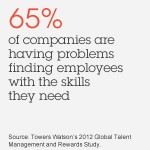 This weeks Economist has a special feature on the changing interactions between the state and the private sector. It looks at various facets of the relationship, from competition law to direct state involvement. Two areas stood out for me particularly however.
This weeks Economist has a special feature on the changing interactions between the state and the private sector. It looks at various facets of the relationship, from competition law to direct state involvement. Two areas stood out for me particularly however.
The first was surrounding the taxing of profits, and indeed the tax derived from companies full stop. The piece discussed the high profile instances of ‘tax avoidance’ by various large companies, whereby they use subsidiaries in low tax countries to channel their profits through at the expense of those in higher tax regions.
Now the article argued that corporations pay more tax via other means, such as payroll taxes, property taxes and so on, than they would via fully taxed profits anyway, but your ethical standpoint aside, it is one of those areas where the laws are being adhered to, so why would the company not do what was legal and logical?
Anyway, the next article was the one that got me thinking, because it discussed immigration issues. Whilst most conservative parties around the world are pro-business, many are also anti-immigration, and this conflict has led many companies, especially in the tech world to establish lobbying groups to try and loosen immigration laws to allow them to recruit all of the talent they need.
And that’s where things didn’t really join up. Whereas when it comes to profits, it seems that companies are quite happy to locate an office in whatever low tax area they can find so they can direct their profits through it and limit their tax exposure, when it comes to securing the best talent, they haven’t thought of taking a similar approach.
I mean we have all manner of tools to help support collaboration and team work from wherever a person may be, so you would think location of talent would be less of an issue than securing the finest minds and plugging them into your digital systems. Right?
If talent management is such a crucial issue, or at least as crucial as minimizing tax exposure, why are more companies using social collaboration tools to ensure they have access to the best minds, wherever they happen to be located? Makes you wonder, doesn’t it?